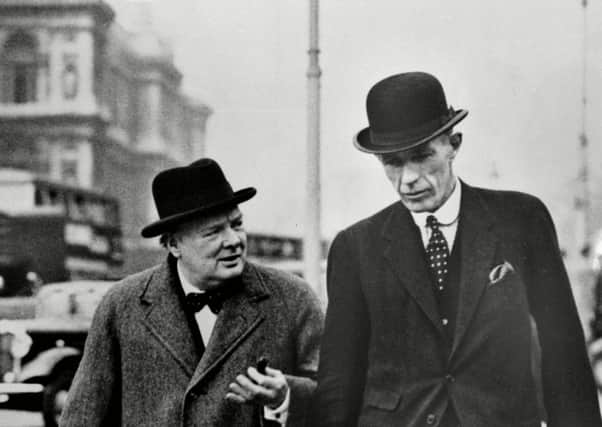Book review: The Order Of The Day, By Éric Vuillard


Éric Vuillard’s The Order Of The Day is billed as a novel but, like Constellation, it is grounded in reality. The events it describes – a series of meetings which took place in the run-up to the Second World War – all really happened. However, whereas Bosc tries to keep speculation to a minimum, Vuillard seems to revel in it. In his description of a 1937 meeting between Hermann Göring and Lord Halifax, for example, he imagines Göring “probably slapped old Halifax on the back, teased him a little” and then “snowed him with a load of doubletalk, the kind that leaves the interlocutor dazed and vauguely flustered, like an off-colour joke”. You would be hard-pushed to find such imaginative leaps in Constellation.
The first of the pre-war encounters Vuillard shows us takes place on 20 February, 1933, in a “small salon” of the palace of the president of the Reichstag, Göring, and it is a superb piece of invective. Twenty-four industrialists have been summoned to meet Göring and the new German chancellor, Adolf Hitler, and after speeches from both, promising the defeat of communism, the elimination of trade unions and a prolonged period of economic stability, they are invited to contribute to the Nazi Party ahead of elections on 5 March. Of course, they all hand over hundreds of thousands of marks, paving the way for the horror that was to follow, but Vuillard emphasises how mundane this transaction must have seemed at the time: “the invitation [to pay up] was hardly novel to these men, who were used to kickbacks and backhanders. Corruption is an irreducible line item in the budget of large companies.”
Advertisement
Hide AdVuillard stresses that these 24 men, these “calculating machines at the gates of hell”, were cyphers for multinational companies which are still to be found at the heart of the German economy: BASF, Bayer, Agfa, Opel, IG Farben, Siemens, Allianz, Telefunken. “By these names we shall know them,” he writes. “In fact, we know them very well. They are here beside us, among us.” The concept of the banality of evil is hardly new, but here Vuillard gives it new impetus.
In subsequent chapters, we see Europe grind closer and closer to war. On 12 February, 1938, the Austrian chancellor, Kurt von Schuschnigg, visits Hitler at Berchtesgaden and is browbeaten into signing an agreement that puts Germany in charge of his country’s police force, foreign policy and more. On 12 March, as the Anschluss gets under way, Joachim von Ribbentrop – finishing his stint as Germany’s ambassador to the UK – spectacularly outstays his welcome at an official farewell party at Downing Street to prevent Neville Chamberlain from being able to respond to this momentous development. And on 13 March, for the benefit of the British Secret Service who are listening in, Göring and Ribbentrop have a ridiculously stagey conversation about how well the Anschluss has been received in Austria – an exchange they subsequently giggle about like a couple of naught school boys during the Nuremberg Trials.
Vuillard observes that “great catastrophes often creep up on us in tiny steps” and it is hard to imagine a book that illustrates that process more chillingly than The Order Of The Day. Given that it was first published in France in April 2017, it’s hard to imagine that its author wrote it without at least half an eye on contemporary events.
The Order Of The Day, By Éric Vuillard, Picador, £12.99